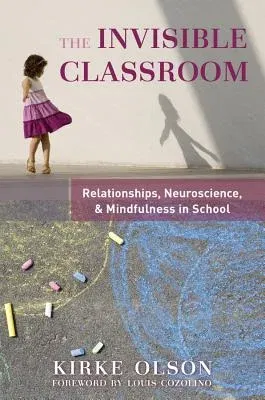Kirke Olson
(Author)The Invisible Classroom: Relationships, Neuroscience & Mindfulness in SchoolPaperback, 28 July 2014

Qty
1
Turbo
Ships in 2 - 3 days
In Stock
Free Delivery
Cash on Delivery
15 Days
Free Returns
Secure Checkout

Part of Series
The Norton the Social Neuroscience of Education
Part of Series
Norton Series on the Social Neuroscience of Education
Print Length
232 pages
Language
English
Publisher
W. W. Norton & Company
Date Published
28 Jul 2014
ISBN-10
0393707571
ISBN-13
9780393707571
Description
Product Details
Author:
Book Format:
Paperback
Country of Origin:
US
Date Published:
28 July 2014
Dimensions:
20.83 x
13.72 x
1.78 cm
ISBN-10:
0393707571
ISBN-13:
9780393707571
Language:
English
Location:
New York
Pages:
232
Publisher:
Series:
Weight:
294.83 gm